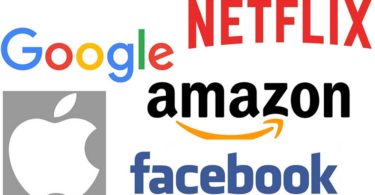For the economy, IPOs serve to motivate entrepreneurs (and those who back them) to begin new companies.
They are part of what ensures great – and continuous – innovations. For the stock market, IPOs represent exciting new opportunities to invest in and new cash for the markets.
Dealogic reported that in the first half of 2018, roughly 120 companies went public, raising more than $35 billion on U.S. exchanges.
Not only is the IPO market strong in a way that's healthy for the economy and stock market, it's being led by the technology and biotechnology sectors, according to Renaissance Capital, an IPO research company.
Approximately 60% of all the IPOs over the last year have been tech and biotech.
One reason is that U.S. President Donald Trump's tax overhaul reduced corporate tax rates and incentivized firms to bring back cash from overseas. Tech companies now hold the largest cash hoards they have ever had.
And they are putting it to use backing new companies that eventually go public.
Another reason is that venture capital is pouring money into tech companies, and they expect to get paid back through IPOs. U.S. IPOs backed by venture capital hit nearly $7 billion midway in 2018.
That's the second largest amount ever. The only larger amount was in 2012, the year of the Facebook Inc. (Nasdaq: FB) IPO.
Now, are IPO investments good for the portfolios of retail investors?
As Money Morning has long said, IPOs can be risky for retail investors – especially tech IPOs.
There are several reasons why this is so.
IPO shares are offered to large, institutional investors first, such as pension funds and hedge funds. Especially for hot IPOs, the large investors can bid up the price before retail investors get a crack at purchasing the shares.
And IPOs can be very volatile after the IPO period is over.
Examples abound of hot IPOs that fell shortly after the offering. Many investors don't use protective strategies, such as a limit order to make sure they don't hold IPOs when they fall.
But Robinson has some advice for investors who want to know how to profit from IPOs in 2018…
How to Profit from IPOs in 2018
The hot IPO scene makes it an optimal time for investors looking to profit from IPOs to purchase the First Trust US Equity Opportunities ETF Fund (NYSE: FPX).
Robinson believes that this ETF is a good long-term idea for every tech investor.
Now, it doesn't focus solely on tech stocks.
What FPX does is focus on representing the broad IPO market.
As a result, investors interested in how to profit from IPOs in 2018 get an excellent twofer: tech-rich IPO holdings and IPO diversification.
FPX holds roughly 100 equities, including some in auto, finance, energy, heavy industry, and some metals.
About 45% of the total is in mid-caps, so investors don't have to worry about the volatility that can affect small caps.
Here's just a partial list of some of the holdings of FPX:
- Grubhub Inc. (NYSE: GRUB) is a market leader in platforms for takeout and delivery orders via PC and mobile devices. Users find their delivery time estimated, can search for their cuisine of choice, and see the ratings for each restaurant. McKinsey & Co. estimates that the market segment could expand by a minimum of 15% through the end of 2020. In the last three years, GRUB has grown sales by an average of 38%.
- PayPal Holdings Inc. (Nasdaq: PYPL) is a leader in digital shopping, providing commerce and payment solutions to customers large and small. Four years ago, the company purchased Venmo, an app for mobile payments, which is popular with millennials and provides PayPal with a highly coveted user base.
- Zendesk Inc. (NYSE: ZEN) is a provider of online customer service platforms for smaller businesses. Its sales could reach $1 billion by 2020.
At the current price of $72.70, FPX is priced below many of the companies it holds. That means it's a cost-effective method of getting one of the best ways to profit from the IPO market in 2018.






